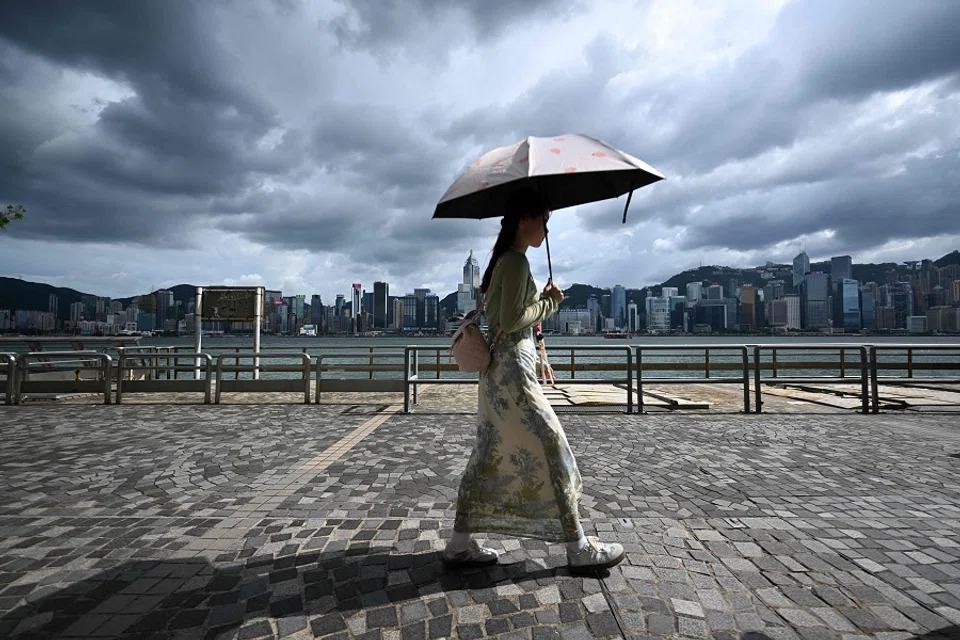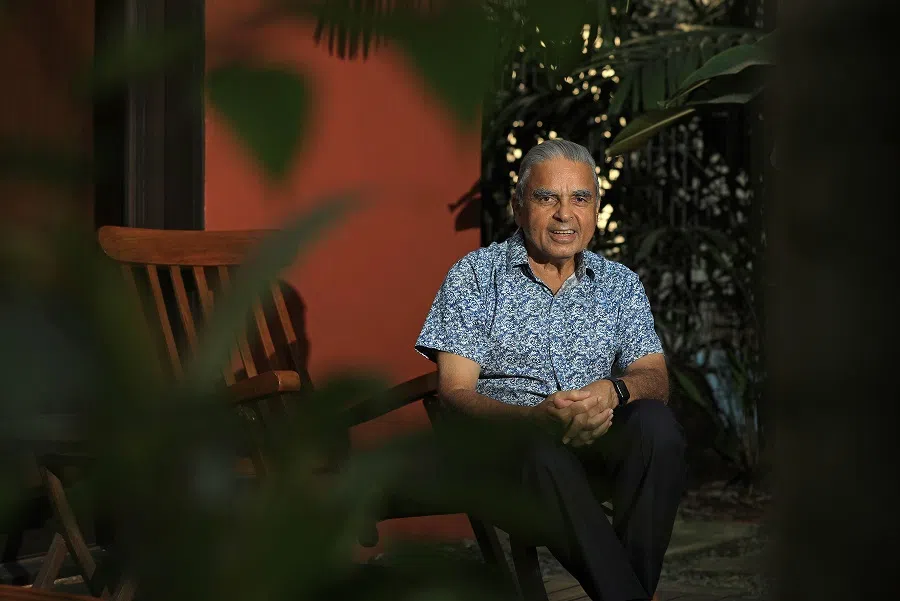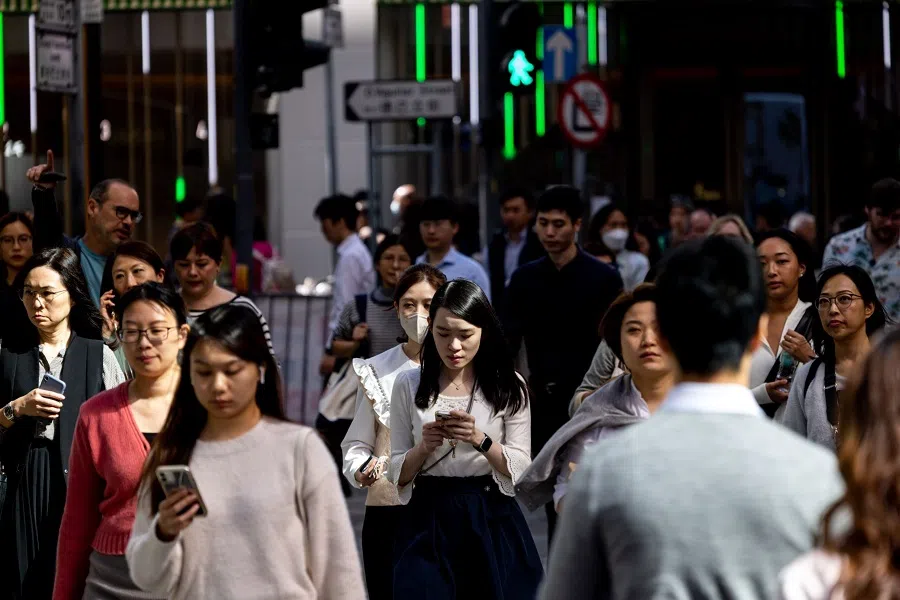Can Hong Kong survive? Insights from ‘Kishore whirlwind’ and the ‘typhoon metaphor’
Academic Li Cheng and researcher Zhang Chi of the Centre on Contemporary China and the World in Hong Kong share their thoughts on Singaporean veteran diplomat Kishore Mahbubani’s recent sharings in Hong Kong. Drawing on his perspectives, they propose several strategies that could benefit Hong Kong.

In early September, Singaporean diplomat Kishore Mahbubani, hailed by some as the “rock star of geopolitics”, rocked Hong Kong with a whirlwind tour. As a distinguished visiting fellow at the University of Hong Kong’s newly-minted Centre on Contemporary China and the World (CCCW), Kishore engaged in a series of events and interviews, sharing his insights on the vicissitudes of civilisations, China-US relations, the changing landscape of geopolitics and Hong Kong’s positioning with his trademark eloquence and “undiplomatic” directness.
More pointedly, Kishore foretold a fiercer US-China geopolitical storm approaching. He drew upon the passing typhoon metaphorically to suggest that Hong Kong institute a warning system for potential geopolitical storms, foster stronger connections among key stakeholders and safeguard its stability.
Kishore: Hong Kong ‘a key political football’ in US-China contest
To a great extent, Kishore’s Hong Kong tour served to further elucidate the prophecy that he made in the UAE: “We are now witnessing the largest geopolitical contest ever seen in human history.” At his first event titled “Beyond Winning and Losing: Is Peaceful Coexistence Possible?”, he provided a seemingly “contradictory” answer: citing concerns about the emerging risks of artificial intelligence (AI) and nuclear weapons, China and the US could avoid all-out war; however, overcoming the dichotomy of victory and defeat has proven to be difficult.
He criticised the escalating containment policies toward China in the US for worsening tensions and being driven by fears of being outpaced. The failure of the US government to address the stagnant or declining living standards of its own middle class highlights this major oversight in strategic planning.
Hong Kong should encourage think tanks and teams of professionals to establish a warning system for potential geopolitical conflicts akin to that utilised to warn of a coming typhoon and monitor its “moves and consequences” — a tactic employed in Singapore.
Kishore also claimed that Hong Kong has become “a key political football” in this contest. At his final public event in Hong Kong, co-sponsored by Asia Society Hong Kong Center and CCCW, he introduced his latest memoir, Living the Asian Century. But far from the title’s implications of an “East wind prevailing over West wind”, Kishore underscored how individuals can navigate the complexities of the times with wisdom and vision. He then compared Hong Kong and Singapore, two small heavyweights and perennial frenemies.

Using Typhoon Yagi as an analogy, he pointed out that geopolitical storms are inevitable, and Hong Kong can learn from its experience weathering natural typhoons. Hong Kong should encourage think tanks and teams of professionals to establish a warning system for potential geopolitical conflicts akin to that utilised to warn of a coming typhoon and monitor its “moves and consequences” — a tactic employed in Singapore.
Kishore’s predictions are coming true. Less than a week after his visit, the US House of Representatives passed bills related to the Hong Kong Economic and Trade Office, academic exchanges, and the infamous “China Initiative”. As the Cantopop lyrics in the song Queen’s Road East (《皇后大道東》) composed by Lo Ta-yu go: “Whether it’s cold or warm will still be influencing the city.” The intensifying geopolitical rivalry will likely pose more severe headwinds for Hong Kong.
Hong Kong’s strategies and solutions
Through extensive engagements with officials, businesspeople, scholars and the media, Kishore, as an onlooker, sought to problem-solve using a different perspective than that of local players. By incorporating his viewpoints, the following strategies may help ride out the storm:
First, Hong Kong is at the forefront of great power games, yet it should boldly position itself as a bridge in global connectivity. Like the ancestors along China’s southeastern coast, who bound boats together before typhoons hit to avoid capsizing, Hong Kong must further entwine systemically important countries and cities through initiatives like the Regional Comprehensive Economic Partnership.
Focusing on Southeast Asia, with ASEAN being Hong Kong’s second-largest merchandise trade partner and Hong Kong being the bloc’s fourth-largest source of FDI, Hong Kong should solidify its standing and support ASEAN’s goal of becoming the world’s fourth-largest economy by 2030. Simultaneously, continuing to back pertinent forums, expos, and training programmes can foster increased cooperation in crucial areas such as supply chains, e-commerce, green technology and professional services.
Eventually, a well-integrated Greater Bay Area (GBA) will be a haven from geopolitical and broader risks. The support provided by the vast hinterland during the Asian financial crisis and the SARS pandemic spoke volumes.

Secondly, Hong Kong should capitalise on talent restrictions in some corners of the world and expedite the creation of an international hub for talent exchange, aggregation, and settlement. Kishore identifies himself as an “endangered” China optimist, a non-mainstream voice in the West. However, as Singapore’s Ambassador-at-Large Chan Heng Chee has stressed: “It’s important in any society that seeks advancement, innovation, and resilience, to allow the articulation of different ideas.”
Providing a platform for great minds with diverse views and perspectives showcases Hong Kong’s academic vigour, essential to its vibrancy and image. Thus, it is vital to utilise institutional strengths to attract more top experts for lectures, dialogues and lasting partnerships. While acknowledging the contributions of talent schemes, Hong Kong should place equal focus on nurturing and retaining the locals, a topic addressed in local scholar Brian Wong’s book Geopolitical Wind and Clouds, which argues that the unique perspectives of local youth on social climate and trends are irreplaceable.
Can Hong Kong survive?
Eventually, a well-integrated Greater Bay Area (GBA) will be a haven from geopolitical and broader risks. The support provided by the vast hinterland during the Asian financial crisis and the SARS pandemic spoke volumes. Hong Kong’s public policy case studies in urban development, community governance, and high-end services cultivation can be shared through collaboration among think tanks to benefit Mainland cities.
As one of the most urbanised places on earth, the GBA is now encountering universal problems like an ageing population, environmental sustainability, and economic transformation. Coordinating to tackle these issues and promote mutual gain not only fortifies the region’s resilience but also presents solutions to its long-term growth and the unprecedented challenges facing human society.
In 2015, Kishore outlined in his bestseller Can Singapore Survive? that “constant reflection and self-examination should be a part of the core DNA of all Singaporeans”. A decade has passed, and both Singapore and Hong Kong have weathered numerous typhoons and continue to prosper. Confronted with greater geopolitical threats as we ponder the question “Can Hong Kong Survive?”, we have reason to believe that the ever-learning and never-say-never Hongkongers can distil a survival and “thrival” guide from the “Kishore whirlwind”.






